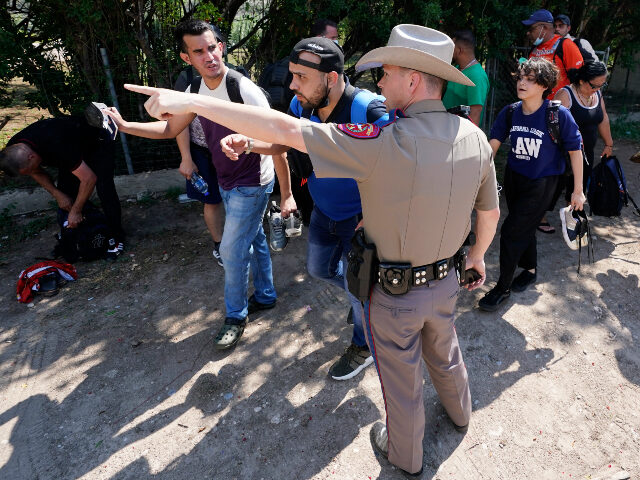The United States Supreme Court extended its pause, preventing the implementation of Texas SB4 immigration law on Wednesday. The nation’s highest court extended the temporary pause until Monday, March 18.
If allowed to take effect, the new Texas immigration law would allow state and local law enforcement officers to arrest and prosecute migrants who illegally enter the state. The latest pause is just one of several legal hurdles the law has faced since it was initially set to take effect earlier this month.
The controversial law would also allow migrants to voluntarily accept removal from the United States for a reduced sentence on the charge of illegally entering the country. Supreme Court Justice Samuel Alito issued the latest order extending the pause on the state’s implementation of the law.
The federal court wrangling on the constitutionality of Texas’ new immigration law has seen the law blocked, reinstated, and twice paused by the U.S. Supreme Court. In late February, Austin’s Senior U.S. District Judge David Ezra halted the implementation of Senate Bill 4, which was to take effect on March 5, citing the federal government’s supremacy over the enforcement of immigration laws.
In his decision, Ezra stated, “For the past century, Texas has relied on its expansive police powers afforded to it under the Constitution to regulate crime within its borders. Texas may continue to do so, but it cannot regulate the federal field of unlawful entry and removal.”
Texas filed an appeal of Ezra’s ruling on the matter leading up to a federal appeals court ruling that granted a seven-day hold barring enforcement of the law to allow the Biden Administration to elevate the matter to the United States Supreme Court. Under the appeals court ruling overturning Ezra’s initial order, the law would have gone into effect on March 9 had the Supreme Court not stepped in.
Texas SB4 mirrors a current federal statute under Title 8 of the United States Code 1325, which makes illegal entry into the United States a misdemeanor for a first-time offender and a felony for a second offense. Under the Biden administration, the federal statute has not been pursued to any significant degree.
Under the pending Texas law, migrants may agree to return to their home country as part of their sentencing agreement. A similar process in federal courts is known as Stipulated Removal, where a migrant may waive their right to a separate administrative immigration hearing agreeing to removal from the United States as part of the criminal sentencing process.
The law may face an uphill battle when reviewed by the Supreme Court. In 2010 a similar immigration law signed by then Arizona Governor Jan Brewer, would have made illegal presence by a migrant and unlawful employment by a migrant in the state a misdemeanor crime. Supreme Court Justice Kennedy ruled in the majority opinion blocking that law that several provisions of SB 1070 infringed upon the federal government’s supremacy to regulate and enforce immigration laws.
Randy Clark is a 32-year veteran of the United States Border Patrol. Prior to his retirement, he served as the Division Chief for Law Enforcement Operations, directing operations for nine Border Patrol Stations within the Del Rio, Texas, Sector. Follow him on Twitter @RandyClarkBBTX.

COMMENTS
Please let us know if you're having issues with commenting.